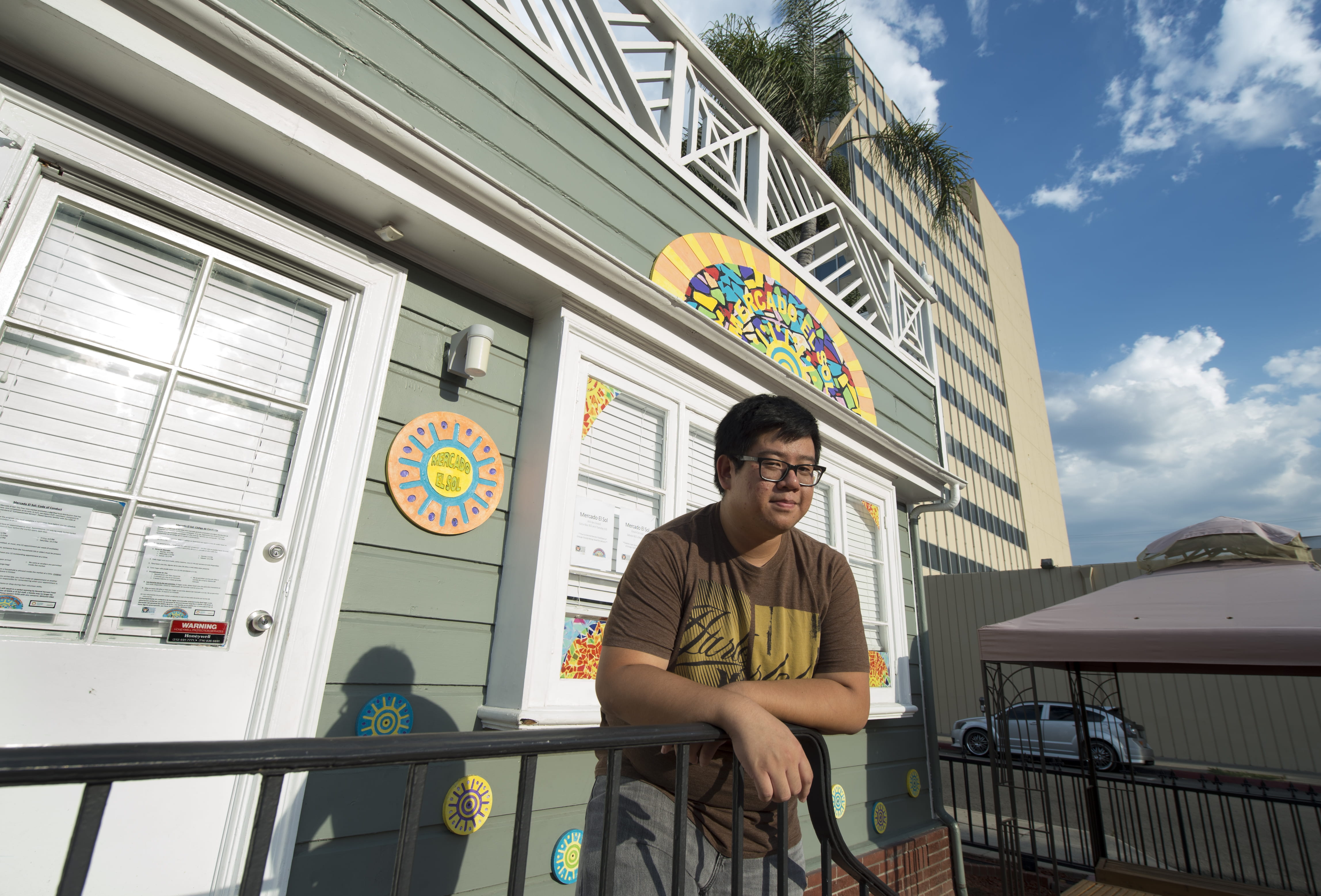Demystifying STEM
Doctoral student helps Latina girls see themselves as potential scientists

As the bell rings at El Sol Science & Arts Academy of Santa Ana, dozens of Latina fifth-graders pour into their after-school classroom. Here in the headquarters of the Super Science Squad, they prepare to solve the day’s most pressing issues: bullying, bland school lunches, school supply theft. Guided by a team of UCI student educators, the girls spend two afternoons a week identifying such problems, then collecting and analyzing empirical data – not only to tackle grade school grievances, but to start “thinking like scientists in their daily lives and developing a science identity,” according to David Liu, a Ph.D. student in UCI’s School of Education.
He founded the outreach program in science, technology, engineering and math after realizing, through his research, that these girls’ demographic is “one of the most marginalized, in terms of not being encouraged toward STEM and supported in their everyday learning. The Super Science Squad challenges the stereotype of who can do science and redefines who can be a scientist.”
Fifth grade, Liu says, is a crucial year in which students tend to either form or reject a “science identity” – the ability to see themselves succeeding in STEM fields. By integrating science into the girls’ home, school and extracurricular activities – instead of it being confined to a single class or isolated activity – he hopes to inform their self-concepts and worldviews.
“It’s about legitimizing the way kids naturally do science and realizing that learning is not about memorizing equations and formulas, but about thinking like a problem-solver,” he says. “We’re teaching students to use scientific methods – problem identification, data collection and analysis, formulation of a solution and presentation of conclusions – to solve issues on a daily basis in a non-classroom setting.”
Liu, who earned a B.A. in anthropology at UCI in 2013, began pursuing a doctorate after spending a year with AmeriCorps teaching and conducting research at a children’s museum. His goal in postdoctoral research is to continue closing the STEM interest gap among young students from marginalized communities, who often struggle to envision themselves as scientists and thus become underrepresented in STEM careers.
To support the Super Science Squad, which was launched in February, Liu enlisted UCI undergraduate education majors to help teach the two weekly after-school sessions. He also develops lesson plans for teachers and orchestrates family science nights to further bridge home, school and extracurricular activities.
“With these experiences layered over time and in different environments, youth begin to see themselves as scientists,” he says.
In one after-school exercise, Super Science Squad members directed a video documentary of their school represented as an ecological system. In another project, they identified bullying as a problem and collected data on the number of classmates it was affecting. Then the fifth-graders developed a prototype “friend button” that would alert a teacher to mediate a bullying situation in progress. They surveyed their peers to determine whether they would use such a button and finally amended their prototype based on suggestions. The effort culminated in a poster presentation for their teachers.
Although the program focuses on topics that many schools wouldn’t consider academic, Liu notes that students are learning foundational principles such as the scientific method, data analysis and experimentation and are beginning to apply science to a range of experiences outside the classroom. He mentions a girl from a family of avid hikers who learns about ecology while on trails. Another youngster, whose father is a car mechanic, is exposed to engineering and problem-solving on a daily basis.
“It’s all about meeting kids where they are and partnering with their parents and teachers to understand how science already manifests in their lives – and working with that,” Liu says. “We can do all these research projects in a lab, in a confined place, but what’s that going to do? We have to be out there actually designing experiments, seeing how science functions at school and at home, within the spaces in which kids actually learn.”
The Super Science Squad, on hiatus for the summer, will resume in late September and run through the school year, until June 2018. Liu intends to finish his dissertation based on the pilot project this year, then collect feedback, analyze it, fine-tune the thesis and publish his findings – a procedure akin to the scientific method he’s taught his students to employ. He hopes to implement similar after-school programs as widely as possible and, eventually, encourage more community-based studies among education scholars.
“We’re investigating ways to help Latina girls succeed in STEM while actually helping them do it in the process,” Liu says. “There’s something amazing about leveraging the power of academia to really promote community-engaged research and benefit the populations we’re trying to serve.”